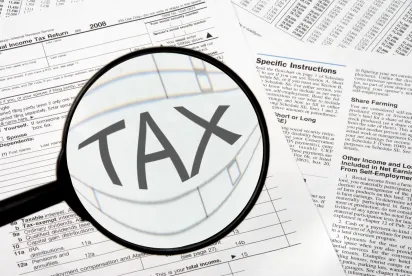On February 9th, President Obama released his Budget Proposals for 2017 (the "Budget Proposals"). The Budget Proposals include the following proposals that may affect private investment fund managers:
-
an expansion of the application of the 3.8% net investment income tax to income earned by "limited partners" of a limited partnership and income earned through an S corporation;
-
a change in law to treat carried interest as ordinary income;
-
an increase in the tax rate applicable to dividends and long term capital gains to 24.2% (for an aggregate tax rate of 28%, inclusive of the 3.8% net investment income tax);
-
the so-called "Buffet rule," pursuant to which high income taxpayers (generally, income in excess of $1 million) would be subject to a minimum tax rate that reaches 30%;
-
requirement to mark-to-market most derivatives contracts on an annual basis, with gain or loss being treated as ordinary income; and
-
requirement to report accrued market discount on a current basis, in the same manner as original issue discount.
The remainder of this client alert discusses in more detail the first two proposals noted above.[1]
Net Investment Income Tax and Self-Employment Tax
The Treasury Department and Congress have sought for many years to close a perceived loophole pursuant to which, under current law, self-employment taxes are not imposed on a limited partner's share of income earned through a limited partnership (other than with respect to guaranteed payments). Similarly, under current law, self-employment taxes are not imposed on an S corporation shareholder's share of income from that S corporation.[2]As a result, some investment fund managers have not been subject to self-employment taxes where their management company is structured as a limited partnership (and they hold a limited partner interest, other than with respect to guaranteed payments) or an S corporation.
The net investment income tax under Section 1411[3] imposes a tax comparable to self-employment tax on certain investment income, and therefore generally works to subject all income to either the net investment income tax or self-employment tax. Under current law, however, the net investment income tax does not apply to income attributable to certain trades or businesses conducted by a partnership or S corporation, assuming the limited partner or S corporation shareholder, as applicable, materially participates in those trade or business activities.[4] The Budget Proposals would close this gap, by broadening the scope of the self-employment taxes and eliminating certain exclusions from the net investment income tax, to ensure that all trade or business income earned through a limited partnership or an S corporation is subject to one or the other tax.
This proposal, if adopted, would not be effective until tax years beginning after December 31, 2016.
Carried Interest
The Budget Proposals would tax carried interest as ordinary income, and also impose self-employment tax on this income. Although the Budget Proposals do not include draft legislative language, the Green Book uses terminology to describe carried interest as an investment services partnership interest ("ISPI") in an investment partnership, and this terminology is consistent with prior legislative proposals on this topic. These previous legislative proposals were carefully drafted to leave little room for tax planning opportunities. The Green Book does provide that, "in order to ensure more consistent treatment with the sales of other types of businesses, the Administration remains committed to working with the Congress to develop mechanisms to assure the proper amount of income recharacterization where the business has goodwill or other assets unrelated to the services of the ISPI holder." This seems to be a reference to the so-called "enterprise tax" pursuant to which the recharacterization of capital gain to ordinary income would include gain realized upon the disposition of an interest in an asset manager organized as a partnership, and the Administration's willingness to accept that not all of these gains would be within the rules related to taxing carried interest as ordinary income.
This proposal, if adopted, would not be effective until tax years beginning after December 31, 2016. Note that the effective date is for income earned from an ISPI in a tax year beginning after December 2016, regardless of the year during which the underlying interest was issued.
Conclusion
The taxation of carried interest and the perceived loopholes relating to income from limited partnerships and S corporations have been the subject of much debate, and over the years, legislative proposals have been introduced to achieve the results targeted by the Budget Proposals. While those legislative proposals have failed in the past, it is difficult to predict how these proposals will be viewed by the current Congress in light of the political landscape.
[1] For a summary of all of the Budget Proposals, please see the General Explanation of the Administration's Fiscal Year 2017 Revenue Proposals (the "Green Book") released by the Treasury Department.
[2] However, "reasonable compensation" for services must be paid to a shareholder who is an employee and that compensation would be subject to employment taxes.
[3] All references herein to the "Code" refer to the U.S. Internal Revenue Code of 1986, as amended.
[4] In general, taxpayers are considered to materially participate in a business if they are involved in a regular, continuous, and substantial way. This often means they work for the business for at least 500 hours per year.






 />i
/>i
